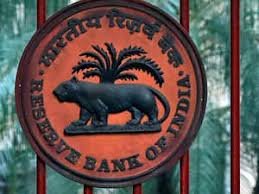RBI Cancels Purvanchal Cooperative Bank’s Licence
Financial Insufficiency and Regulatory Action
The Reserve Bank of India (RBI) has revoked the licence of Purvanchal Co-operative Bank, situated in Ghazipur, Uttar Pradesh. The decision stems from the bank’s failure to maintain sufficient capital and sustainable earnings. This financial inadequacy led the RBI to take regulatory action to protect public interest. Consequently, the Commissioner for Cooperation and Registrar of Cooperative Societies, Uttar Pradesh, has been instructed to initiate the winding-up process and appoint a liquidator.
Impact on Depositors
The cancellation of the bank’s licence means it can no longer carry out banking activities, including accepting deposits and repaying existing deposits. However, the Deposit Insurance and Credit Guarantee Corporation (DICGC) will provide a safety net for depositors, insuring amounts up to Rs 5 lakh. This measure ensures that about 99.51% of the bank’s depositors will receive their deposits up to the insured limit, thus providing some financial relief amidst the bank’s closure.
Regulatory Safeguards
In response to the licence cancellation, the DICGC has already disbursed Rs 12.63 crore to insured depositors. This action highlights the regulatory framework’s role in mitigating financial losses for depositors when a bank fails. The swift intervention by the RBI and the DICGC aims to maintain trust in the banking system by ensuring that depositors’ interests are safeguarded.

Why This News is Important
Implications for Banking Sector
The cancellation of Purvanchal Co-operative Bank’s licence is significant as it underscores the RBI’s vigilant regulatory practices. This move serves as a reminder of the importance of maintaining adequate capital and sustainable financial practices within banks. For students preparing for banking exams, understanding such regulatory actions is crucial for comprehending the RBI’s role in ensuring financial stability.
Public Confidence in Financial Systems
This news also highlights the role of deposit insurance schemes in protecting depositors. It reinforces the importance of the DICGC’s role in providing financial security to depositors, thus maintaining public confidence in the banking system. Exam aspirants should note the mechanisms in place to protect depositors’ interests, a key aspect of financial and banking awareness.
Historical Context
Cooperative Banks in India
Cooperative banks have been an integral part of the Indian banking sector, catering primarily to rural and semi-urban areas. However, these banks often face challenges related to governance, capital adequacy, and financial management. The cancellation of Purvanchal Co-operative Bank’s licence is a reflection of these ongoing issues. Historically, similar actions have been taken by the RBI to ensure that only financially sound banks operate in the market, protecting depositors’ interests and maintaining stability in the financial system.
Key Takeaways from the Cancellation of Purvanchal Cooperative Bank’s Licence
| Serial Number | Key Takeaway |
|---|---|
| 1 | RBI cancelled Purvanchal Co-operative Bank’s licence due to insufficient capital and unsustainable financial prospects. |
| 2 | The bank can no longer conduct banking activities, including deposit acceptance and repayment. |
| 3 | Deposit Insurance and Credit Guarantee Corporation (DICGC) will cover deposits up to Rs 5 lakh. |
| 4 | Approximately 99.51% of depositors are expected to recover their deposits up to the insured limit. |
| 5 | The RBI’s action highlights the importance of financial soundness and regulatory compliance in the banking sector. |
Important FAQs for Students from this News
What led to the RBI cancelling Purvanchal Cooperative Bank’s license?
- Answer: The cancellation was due to serious regulatory violations and concerns over financial stability.
How does the cancellation affect depositors?
- Answer: Depositors may face challenges in accessing their deposits and conducting transactions.
What are the broader implications of this decision for the banking sector?
- Answer: It highlights the importance of regulatory compliance, governance, and systemic risks within cooperative banks.
What should customers of Purvanchal Cooperative Bank do now?
- Answer: They should follow updates from the RBI and explore options for transferring their deposits to other banks.
What regulatory reforms might follow this incident?
- Answer: The incident might lead to discussions on enhancing regulatory oversight and governance in cooperative banks.
Some Important Current Affairs Links














